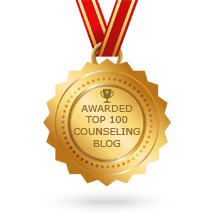Substance Abuse During COVID
/Living through a pandemic is a novel and unprecedented event for many of us. Our day to day lives have been significantly altered as we are unable to go to work, send our children to school, interact with our friends face to face, and complete activities that bring us pleasure. Due to these limitations, many individuals are finding themselves in high-risk situations, leading to substance misuse, addiction, and relapse, as they are struggling to find happiness and joy in our state of isolation.
Within a high-risk situation, a trigger or an event, person, or feeling that may lead to substance use is present. Often, these triggers can be negative emotions such as anxiety, fear, sadness, anger, or boredom. During the pandemic, these negative emotions are widespread as a result of the safety measures being taken, such as social distancing and isolation.
Turning to substances to negate feelings of isolation, stress, and fear can be problematic as these substances can negatively impact our physical health, specifically our immune system. With the use of these substances, our immune system is weakened, which can place us at an increased risk for COVID-19. Further, changes in our respiratory, pulmonary, and cardiovascular system often occur with the use of drugs, leading to severe complications if we contract COVID-19.
During this pandemic, it may become difficult to determine the difference between substance use and substance abuse. This may become difficult to distinguish, as our new routines can include virtual happy hours with friends/colleagues or drinking a couple of glasses of wine every night before bed. To determine the difference between use and abuse, we must evaluate if our use of substances is impacting our functioning. We can ask ourselves questions such as is my use negatively impacting work? Is it affecting my relationships with my family and loved ones? Or is it causing health issues?
Rather than turning to substances during this time, we must ensure that we have positive coping skills such as journaling, exercising, and relaxation techniques such as deep breathing and progressive muscle relaxation. Further, there is an extensive amount of resources that can be used, including hotline numbers, virtual addiction, and recovery meetings, as well as educational resources.
Such resources can be found at:
By: Mary Collins, LPC, CADC







